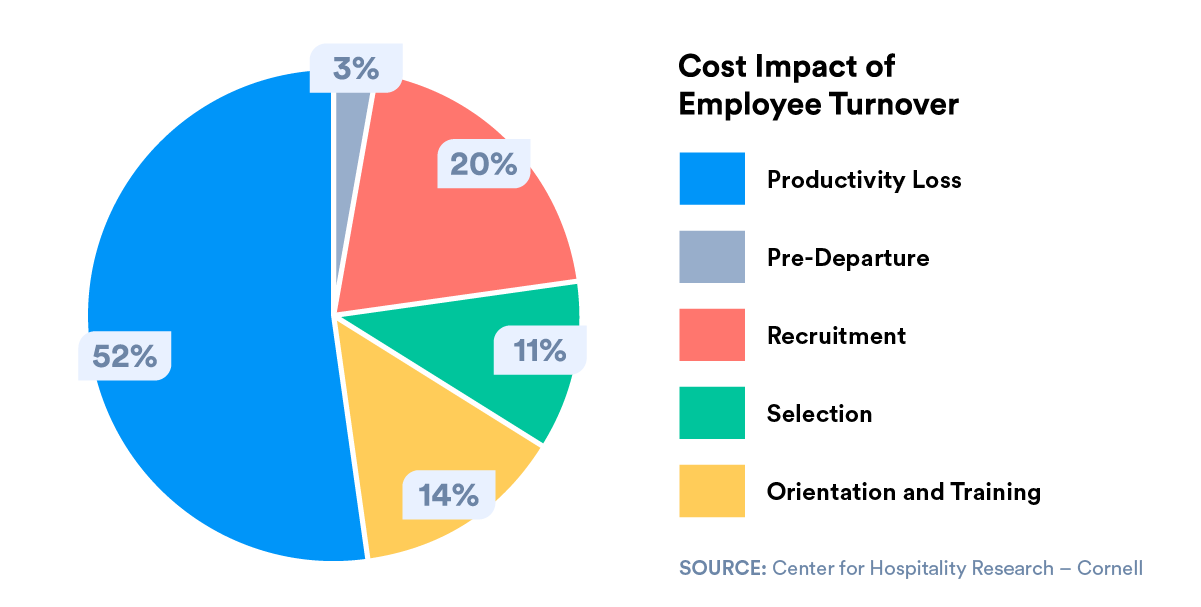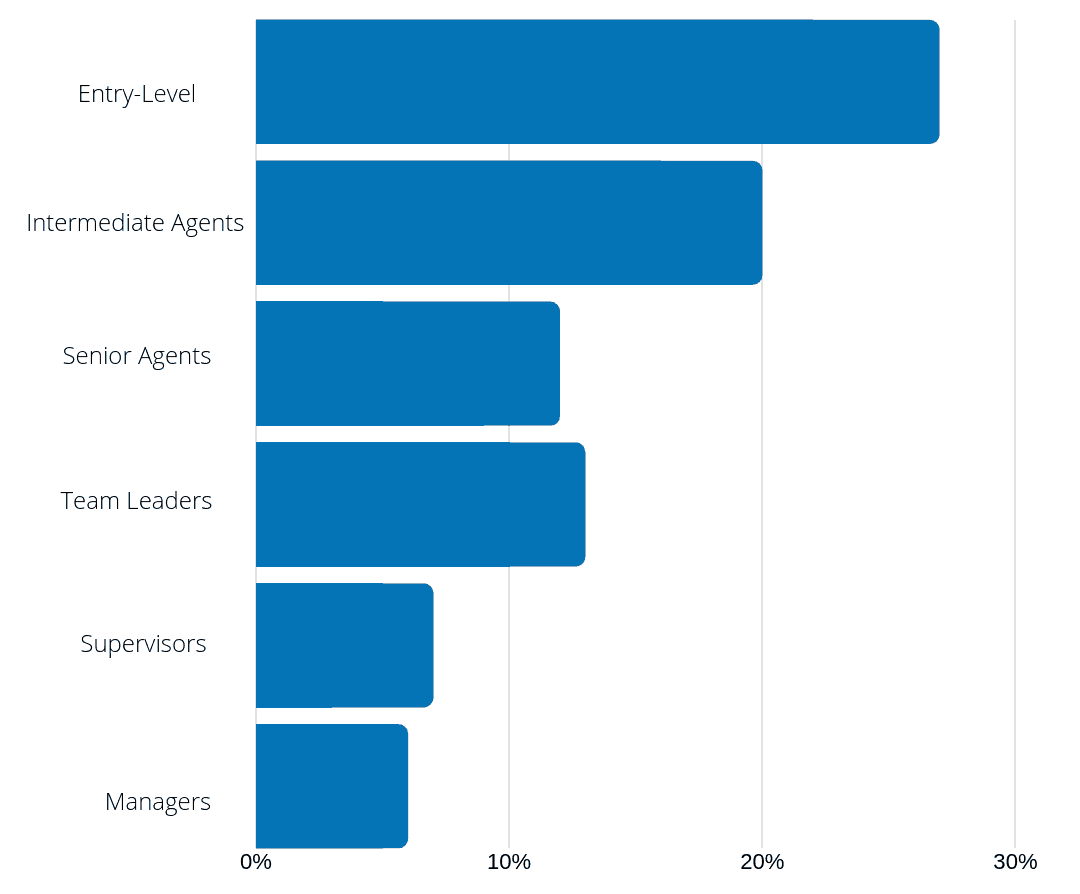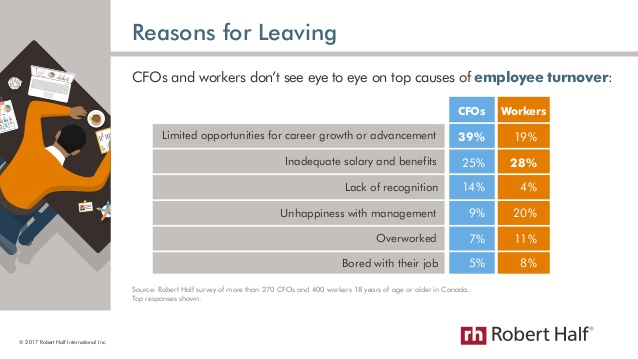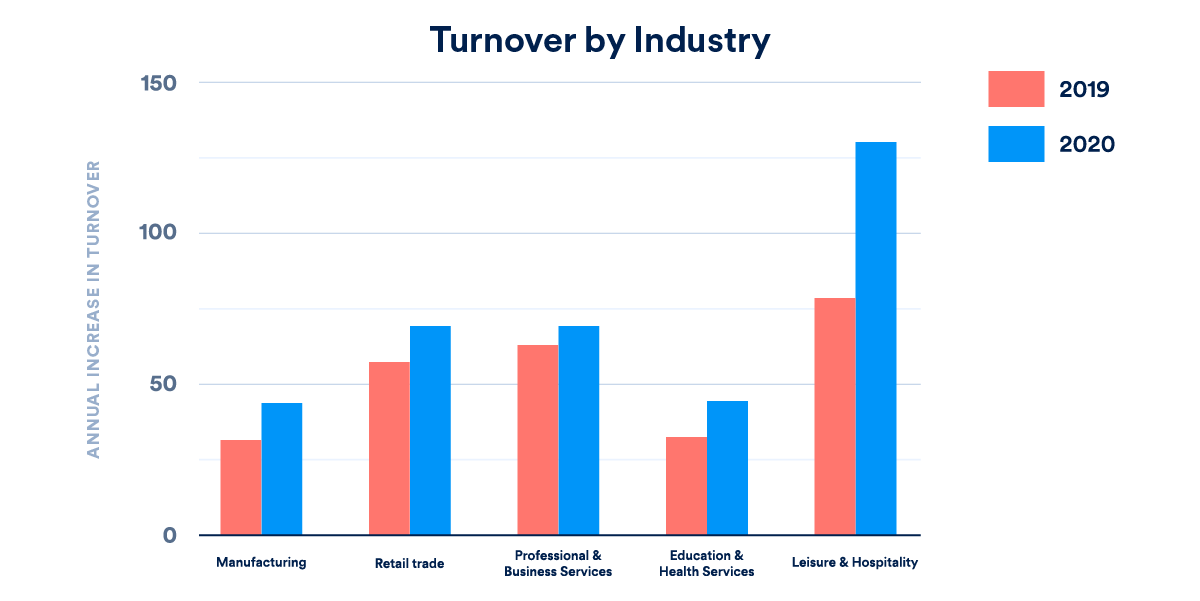
Increase Retention with this Easy and Cost-Free Solution
It’s costing you too much if you don’t deal with it
Turnover is costing you exorbitant amounts of money every year and HR departments have been fighting it for decades. The numbers continue to inflate, the need to differentiate yourself from competitors is more important every year, and the cost associated with turnover can debilitate or even cripple a company.
This is especially true for businesses with hourly workers:
- A study from CAP found that the average cost to replace a single employee earning less than $30,000 per year is 16% of their annual salary.
- Replacing an employee making $10 per hour equates to $3,328 and this number continues to increase with higher brackets. Costs add up fast.
- Hiring a new employee includes advertising, interviewing, screening, and hiring materials, but that’s just the start of cost overflow: The hidden costs add up fast; business invest up to 20% of an employee’s salary into training.
Companies may also experience a loss of productivity as the new employee ramps up to become as productive as the prior employee. Company morale often takes a hit and a lack of engagement can burden the office. When high turnover occurs, it can become a virus and lead to other employees to depart.

We know you’ve tried fostering an inclusive culture, creating awards to recognize employees, and offering flexibility within the workplace. These tactics just aren’t working. We also know that tight budgets and thin margins limit the range of tactics available to increase retention efforts.
Luckily, there is still hope. Payactiv’s invention, Earned Wage Access (EWA) has become a must-have benefit for companies that deal with high turnover.
Visa Insights report states that 89% of employees said they would stay with an employer longer if they offered EWA.
It’s not surprising, given that nearly 100 million Americans are living paycheck to paycheck and the global pandemic has been especially tough on many hourly workers. EWA is a key feature of the Payactiv financial wellness platform which includes a whole suite of financial management services that help people deal with everyday financial needs and provide a path to financial stability and growth.
Companies, including Walmart, offer Payactiv to hundreds of thousands of employees at no cost to the employer. Offering this solution has been proven to decrease attrition within 30, 60, 90 days by 36%, 29%, and 24% respectively.- “Earned Wage Access Confirmed to Increase Employee Retention Impact Report”
How Is Turnover Affecting Your Industry?
Click on your Industry below to see how turnover is affecting your bottom line and how Payactiv can prepare you for the future.
- Retail
- Healthcare
- Senior Care
- Restaurants
- Hospitality
- Warehousing & Logistics
- Professional Services
- Education/Non-Profit
Retail
The retail industry, which compromises brick-and-mortar stores and online shopping, remains the largest employer in the U.S.economy. It directly employs 29 million Americans.
Everyone in the world is involved in the retail industry, whether they’re a consumer or employee – and oftentimes both at once. Due to its vast reach, one may think it’s rather easy to attract and retain employees. However, the nature of hourly work at most of these companies has created a precarious position for many of its employees.
The average turnover rate in the retail industry is just above 60 percent, which has caused a continual cycle of hiring and training new employees. This results in poor customer service and a negative impact on retailers’ bottom lines with little room for employers or employees to thrive.
This turnover can’t be boiled down to one thing, but the top two reasons for it are compensation (40%) and benefits (21%).
Minimum wage and tips on a weekly or bi-weekly are not enough to sustain most families. The average hourly retail worker struggles to fill the gap left between pay periods and often turns to desperate measures to pay their bills like payday lending services and piling on debt. In 2020, the median pay for retail workers was $27,320 per year or $13.13 per hour. This falls vastly short of workers’ needs for rent, food, and other expenses.
About 83% of employees have experienced some sort of unexpected expense in the last 12 months and this added stress to overworked and underappreciated employees leads to turnover.
Put simply, employees are leaving companies in the retail industry to seek ones with higher pay. Giants like Safeway often retain employees with unions, strong benefits packages, and weekly dissemination of pay. This trend towards more flexibility and wage access has mitigated some issues. It has become apparent that companies with less frequent pay periods see higher rates of turnover than a company with a weekly pay period. The Gartner Group found that “instant access to pay helps retain employees.”
Dave Zielinski of SHRM, The Society for Human Resource Management, states “The ability to draw pay right away can keep some hourly workers from jumping ship to competitors for a 25-cent or 50-cent per-hour pay increase.” This small margin can pay large dividends for employees and employers alike.
The retail industry is in need of a dramatic shift in ideology to once again bolster employers and employees and permanently halt turnover.
Healthcare
Few understand what conditions healthcare workers face on a daily basis. Employers face nurse shortages and face one of the highest turnover rates of any industry. There is a bevy of issues that account for this. A burnout staff, inexperienced workforce, and inconsistent salaries are all factors. This results in employers, healthcare workers, and patients alike suffering from a lack of teamwork, effective communication, and familiar faces that instill a community of trust.
Studies show that 30% of graduates fresh out of college will leave during the first year of their practice and that number increases as much as 57% in the second year. The national average turnover rate for registered nurses, year over year, is 17.1%. The reality of the situation is that a solution to this problem is far past due.
According to the Bureau of Labor Statistics’ Employment Projections 2016-2026, job growth among registered nurses is only expected to grow by 15% by 2026..
COVID-19 shook the entire globe in 2020, and registered nurses became among the most valued and cherished workers around the world. They were needed more than ever and the ability to retain these nurses became even harder. Not only were they overworked, some putting in shifts around the clock, but their work was now a considerably dangerous liability to their own health as well.
An organization loses between $37,700-$58,400 for every departing nurse, and hospitals can lose upwards of $5.2M-$8.1M annually. This number was exacerbated by the COVID-19 pandemic.
As a result, the signing bonuses for nurses increased 12% during the pandemic from an average of $8,200 to $9,190 according to an Incredible Health report.
“The market is as competitive as it has ever been in the history of U.S. healthcare when it comes to competing for talent and competing for nurses,” said Incredible Health CEO Iman Abuzeid.
Utilizing signing bonuses to attract candidates highlights an underlying issue and obvious solution that Payactiv is able to offer to industries around the country. Nurses picked those specific hospitals and organizations to work at because it allowed them access to more money upfront as soon as they were hired. Much like companies in the retail industry that offer quicker and more access to pay, they have seen an uptick in attracting candidates, retention in keeping employees and an ultimate decline in turnover.
Senior Care
The senior care industry turnover rate is far too high to sustain employers or employees’ livelihood.
Similar to the workers in the healthcare industry, senior care workers are overworked and underappreciated. So much, in fact, that senior caregivers have an astonishing turnover rate of 50%.
If you have a staff of 1,000 employees at your senior living community, you must hire 500 new employees every year to maintain the status quo.
The main causes of turnover are the competitive labor market, long hours, low pay, and lack of career growth.
It costs senior living communities $3,500 to $5,000 per hire between job boards, onboarding, and training — and much more when the quality of care inevitably drops. Residents are more at ease being cared for by people they know, who understand their needs. A high churn rate is emotionally disruptive and leads to expensive mistakes.
Managers can reduce churn by incentivizing retention — setting regular bonuses and/or pay increases. Implement surveys to get anonymous feedback from employees about morale and pay concerns.
Senior living managers need to adopt new technologies and policies to find and retain talent.
Restaurants
While the senior care industry is experiencing volatile rates of turnover, the restaurant industry faces even higher rates. This industry can include any sort of restaurant, from casual dining, expensive dining, or quick service. Quick service restaurants, or QSRs, include little to no table service and focus on serving many customers quickly.
This creates a churn and burn culture that is reflected in the astonishing turnover rates.
Employee turnover at a QSR is consistently higher than that of any other industry with a rate reaching close to 150%.
With such unprecedented turnover, restaurants are at severe risk of losing up to $150,000 on average per year. According to research by the Center for Hospitality Research at Cornell, restaurants pay an average of $5,864 for a single employee turnover.
This number is focused on front-line staff due to the frequency of front-line workers leaving work instead of managerial or executive-level employees. As a result, this is the most relevant metric that any restaurant owner would be interested in. Of course, on top of the tangible cost associated with such staggering turnover, the reputation and survival of restaurants is even higher.
Restaurant employees often rely on more than half of their income to come from tips. They are at the mercy of the customers they serve to bring enough money each week to support their families.
In some cases, restaurant workers make as little as $2.13 per hour due to some state’s tip credit laws. Having timely access to their tipped income is crucial to keep them afloat.
Since the pandemic, cash has all but disappeared from restaurants. With restaurants becoming cashless and customers paying by debit or credit cards, tipped employees often must wait for their paycheck to receive their tips.
Payactiv partners with restaurants to automate tip and mileage disbursements to their employees through the app and offers a two-day cash float allowing pending transactions to clear. Employees receive their tips directly on their debit card after their shift and no longer have to wait or carry cash around.
Hospitality
The Hospitality industry takes care of us when we need a change of sheets, when we order room service, or when we need a seamless check-in experience after an exhausting road trip. Unfortunately, workers in hospitality don’t often feel that same reciprocity and face a variety of challenges that lead to turnover.
Long hours, unpredictable shift work, manual labor, low pay, and the pressure of having to be constantly upbeat in customer-facing interactions creates a cocktail of pressure that has negative impacts on the mental and physical health of workers.
The Bureau of Labor Statistics concludes that turnover in the hospitality industry hovers around 70-80% annually. This number became even more severe when the COVID-19 pandemic hit.
Thousands of employees were laid off and the few remaining employees were forced to continue working a job that put them in harm’s way and ramped up the daily pressure even further. Many covered the tasks associated with multiple roles that could not be filled and worked 12 hour days in face of a deadly virus.
As employees were stretched thin, employers experienced unprecedented levels of stress as well. COVID-19’s impact on the industry was nine times worse than it was after 9/11.
Amid the pandemic, revenue was cut by half from $167 billion to $85 billion and hotels were only at 44% occupancy. This was down 66% from where it was in 2019. Employers were staying afloat, but woefully understaffed. With the inevitable employee stress and overexertion, turnover was to be expected.
The remaining frontline workers kept the hospitality industry alive in a global pandemic. Due to the intense and dangerous conditions, many frontline workers faced in 2020-21, attracting, hiring, and retaining many employees will require additional incentives.
A staggering 70% of people are planning to travel in 2021 and beyond.
Thousands and thousands of employees will need to be swiftly onboarded to accommodate the drastic increase in demand. The race to attract and hire top talent has been met with the necessity to keep the current workers. The combination of a rigorous ramp-up post-pandemic and seasonal hiring has many new hires already experiencing fatigue and burnout yet again. This will eventually lead to lower employee morale, higher turnover, and reduced company efficiency.
Employers will need to recommit to protecting the mental, physical, and financial health of these workers. In order to do so and support new safety initiatives “hospitality verticals will be looking to technology…for guests and employees.” This trend shows technology like a financial wellness solution is the perfect tool to reprioritize employees while simultaneously reducing the turnover of existing employees, attracting new hires, and ensuring employers maintain positive metrics.
Warehousing & Logistics
The warehousing industry is among the top four industries with the highest worker turnover rate at 37%. Warehouse workers face many challenges, from inadequate training, unchallenging work, low pay, little room for advancement, poor work-life balance, and exposure to hazardous environments. This has led to the industry’s biggest pain point being: the hiring and retaining of qualified hourly workers.
Many warehouses are in remote areas and transportation to and from work can be difficult. For someone who faces struggle every day, lack of transportation may be the final straw.
Luckily, workers at companies that offer Payactiv as an employee benefit can use their earned wages to pay for unlimited rides with Uber for a flat non-recurring pay period fee which includes access to multiple financial wellness services.
Many who stayed through these challenges in the past lost their jobs due to the COVID-19 pandemic. The warehousing industry faced unforeseen circumstances. As people stayed grounded at home, online consumption soared. In a pre-pandemic world, manufacturers implemented a “just-in-time” methodology in order to minimize expenses.
When warehouses were forced to reduce staffing due to social distancing mandates, this created a shortage of inventory. Now, manufacturers plan on keeping buffer stock to combat the event of a staffing shortage and account for the previous and potential inventory shortage.
This will create less space in warehouses and more work for fewer employees. Consequently, the stress associated with that reality may lead to higher turnover rates than the industry already experiences.
In March, for example, Amazon announced that it was hiring 175,000 new workers to help run its fulfillment and delivery network. By May, the company had reportedly filled all of those positions. According to the US Census Bureau, the warehousing and storage industry was a $36.6 billion market in 2019, and the warehouse employment rate is currently at an all-time high with 1.25 million jobs.
With such massive numbers, it’s imperative that employers understand how to navigate a constantly changing landscape. Whether it’s keeping employees or attracting new ones due to demand, compensation remains a vital issue. 50% of warehouse operators struggle with turnover and many employees jump ship for a 50-cent or $1 raise per hour to survive.
This pain point will only be exemplified as business booms in the future and demand continues to rise.
Professional Services
The old mentality surrounding company loyalty and decade-long tenure has been replaced by quicker turnover. Newer generations are demanding fairer working environments, more work-life balance, higher compensation, and more flexibility than ever before. Whether employees are capitalizing on a buffet of opportunities and perks that companies provide or seeking to better their life by looking for a job with less stress, we know that employees are staying at companies for increasingly shorter amounts of time.
Today, 91% of Millennials expect to stay in a job for less than 3 years.
That means they will have 15 to 20 different jobs over the course of their life.
This is exemplified in the Professional Services industry where turnover rates routinely reach upwards of 20-30%.
Call Center Turnover Rates by Job Title

Call center employees work long hours with lots of repetition. It is often grueling work with shifts around the clock to provide 24/7 service. The nature of the job requires a high level of professionalism and customer service, however many do not account for the mental anguish and difficulty of being yelled at on the phone all day by strangers.
On top of that, most employees must be highly specialized and trained with different features to walk customers through problems. This makes ramping up very difficult and replacing employees even more difficult. Much like the warehousing industry, call centers are in rural areas, and transportation to work can be an issue employees face every day. This combination creates an incredibly high turnover rate and that trend can irreparably impact firms in a negative manner. This can yield a loss of revenue and reputation.
We know you care, but options are scarce. Payactiv’s solution focuses on improving livelihood, minimizing financial stress, and creating a transparent and communal workforce that will heighten employee morale and create successful organizations.
Education/Non-Profit
“Children are our future.” We’ve heard the mantra before and the education industry is responsible for teaching our children what they’ll take with them into the future.
However, the education industry has actually been underappreciated and underfunded for decades. Teachers and staff work incredibly long hours and under high pressure and strenuous circumstances to educate and enlighten. However, many are not prepared for the realities of the industry.
Janitors, teacher’s aides, and bus drivers all face long hours, challenging demands, working conditions, and lack of resources.
Approximately half of new K-12 teachers end up leaving the profession within their first 5 years. This is often done out of a sense of self-preservation.
The non-profit industry is similar in many ways. An altruistic newcomer with a desire to change the world and do good enters a working environment that is much different from the one they imagined. Long hours, poor working conditions, and lack of substantial compensation has led nearly half of their workforce to the same path as many teachers in the education industry.
About 45% of responding nonprofit employees indicated that they will seek new or different employment in the next five years.
“These statistics are alarming and should serve as a warning to social impact organizations of all types who have not adopted a talent attraction strategy to remain competitive,” said Lisa Brown Alexander, CEO of Nonprofit HR. “Gone are the days of talented professionals being willing to take a vow of poverty to work for a cause or a mission they are passionate about.”
The social sector, rich with diverse and rewarding career opportunities, has long faced the misperception of being low-paying with limited opportunities for professional growth.
People simply should not have to sacrifice their livelihoods for the greater good. They need access to their wages and require a means of living that does not threaten to subject them to poverty in the wake of the effort they expel on a daily basis. In an effort to mitigate hardships that staff in the educational sector and non-profit organizations face, employers can offer a valuable financial wellness plan.
This will drastically reduce turnover and increase retention as educators and non-profit employees are able to access their wages in a timely manner, budget for expenses, reinvest in their lives and their work, and create a balance that does not currently exist within these industries.

A Solution For The Future
Whether it’s a poor work-life balance, lack of benefits, or inadequate salary, Payactiv recognizes the reality many workers are facing. There is often a disconnect between executives and workers on the ground level and the problems executives think workers face may not be the ones they actually do. We know that high levels of stress, financial and otherwise, lead to high turnover and loss of productivity. Oftentimes the root of this stress is lack of access to compensation. In the past employers could only choose to increase compensation or keep it stagnant. Now, with Payactiv, employers can accelerate the velocity of it. This is a game-changer and will only prove more useful as the Millennial generation grows and Gen Z begins entering the workforce.

It’s no secret that today’s working world is a much different place than that of our parents or theirs before them. Millennials feel their generation is doing far worse financially speaking than Gen X or Baby Boomers.
Millennials are now the largest part of the workforce, making up 35% of the employees “Earned Wage Access Confirmed to Increase Employee Retention Impact Report”. They are notorious for job-hopping, valuing competitive salaries, and prioritizing work-life balance. In short, millennials have altered the way employers interact with employees.
Retention tactics such as regular check-ins, benchmark compensation, and benefits offerings have worked in the past, but these rarely set employers apart from the competition. The landscape continues to evolve and employees are looking for more than just virtue signaling. Employees want to work for companies that care for them and address their needs as much as their own. With new generations on the horizon, a global pandemic altering the world, and a constantly evolving workforce, the necessity to offer unique and game-changing solutions to attract and retain talent has never been more apparent.
This is where Payactiv comes in.
Offering a zero-cost financial wellness benefit from Payactiv has been proven to dramatically reduce employee turnover and address pain points in every industry. As the leader in Earned Wage Access, we give your employees instant access to their earned but unpaid wages so they can plan, use, and save their money while avoiding late fees, overdrafts, and expensive loans. Our product offerings (on-demand pay, cashless tip disbursements, the ability to access better banking and financial management services, more control over schedules, and a discount marketplace) have changed employees’ lives in and outside of work. Payactiv Connect enhances employers’ lives as well, allowing them to communicate with deskless employees to increase engagement, create opportunities to earn through shift coordination, and easily reward employees for a job well done. Another unique product offered through the Payactiv platform is TimelyRides which allows the employer to send an Uber ride to an employee who calls in due to unexpected transportation issues. The positive impact of Earned Wage Access and the Payactiv Livelihood platform is reflected in the needs of every single employee today.
By reducing financial stress, creating loyalty, and fostering a rich culture of reciprocity, employers can ensure they decrease turnover and increase retention to build a stronger, more passionate, and effective workforce for the future.
About Payactiv:
Payactiv, a Public Benefit Corporation and Certified B-Corp, provides on-demand access to earned but unpaid wages. Businesses that partner with Payactiv to offer our financial wellness services to their workforce see significant cost reductions through increased recruitment, engagement, and retention. Employees love Payactiv because it eliminates the expensive between-paychecks toll of payday loans, bank overdrafts, and late fees. Payactiv platform is the most comprehensive suite of financial services that include savings and budgeting tools, bill payment, and financial health measurement. Payactiv is the winner of the Innovative Payments Association’s Consumer Champion Award, a Finovate winner and finalist, and the recipient of numerous best-in-class awards in both FinTech & HRTech.
Get Payactiv for your business
Related Articles
Key takeaways: Automated cashless tips provide a secure and efficient way to...
The heart of every business is its employees, and these employees need to be...
February is Black History Month, a time to honor the rich history, vibrant...
© 2025 Payactiv, Inc. All Rights Reserved
24 hour support: 1 (877) 937-6966 | [email protected]
* The Payactiv Visa Prepaid Card and the Payactiv Visa Payroll Card are issued by Central Bank of Kansas City, Member FDIC, pursuant to a license from Visa U.S.A. Inc. Certain fees, terms, and conditions are associated with the approval, maintenance, and use of the Card. You should consult your Cardholder Agreement and the Fee Schedule at payactiv.com/card411. If you have questions regarding the Card or such fees, terms, and conditions, you can contact us toll-free at 1-877-747-5862, 24 hours a day, 7 days a week.
** Central Bank of Kansas City does not administer, nor is liable for earned wage access.
Payactiv holds earned wage access services (EWA) license number 2591928EWA with the Wisconsin Department of Financial Institutions.
Apple and the Apple logo are trademarks of Apple Inc., registered in the U.S. and other countries. App Store is a service mark of Apple Inc., registered in the U.S. and other countries.
Google Play and the Google Play logo are trademarks of Google LLC.
Galaxy Store and the Galaxy Store logo are registered trademarks of Samsung Electronics Co., Ltd.




